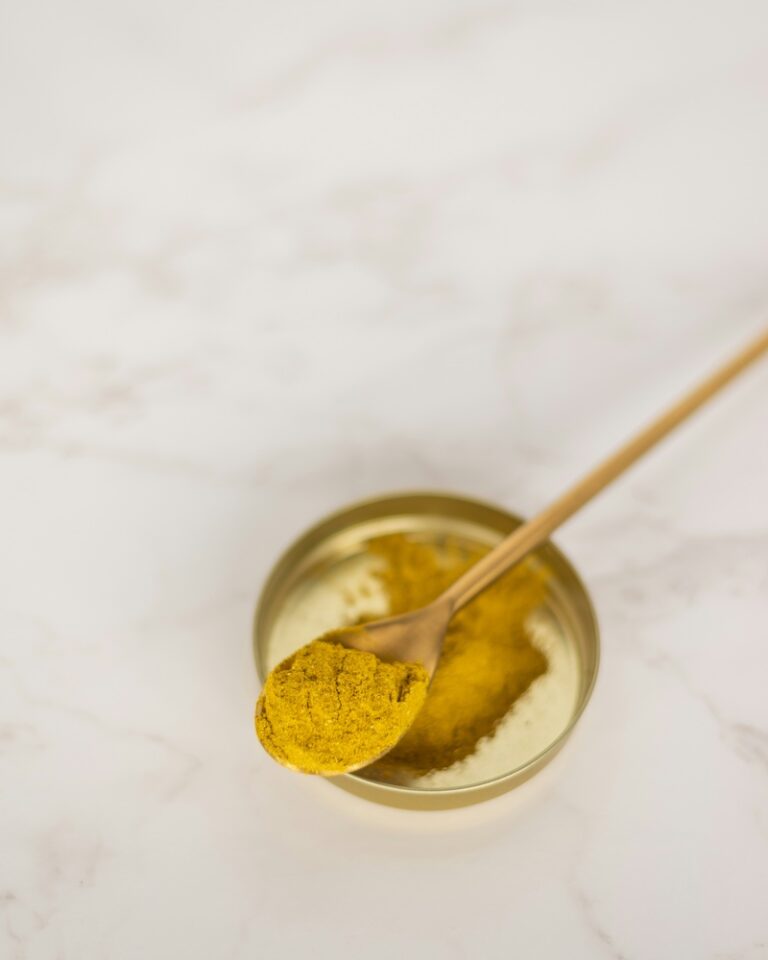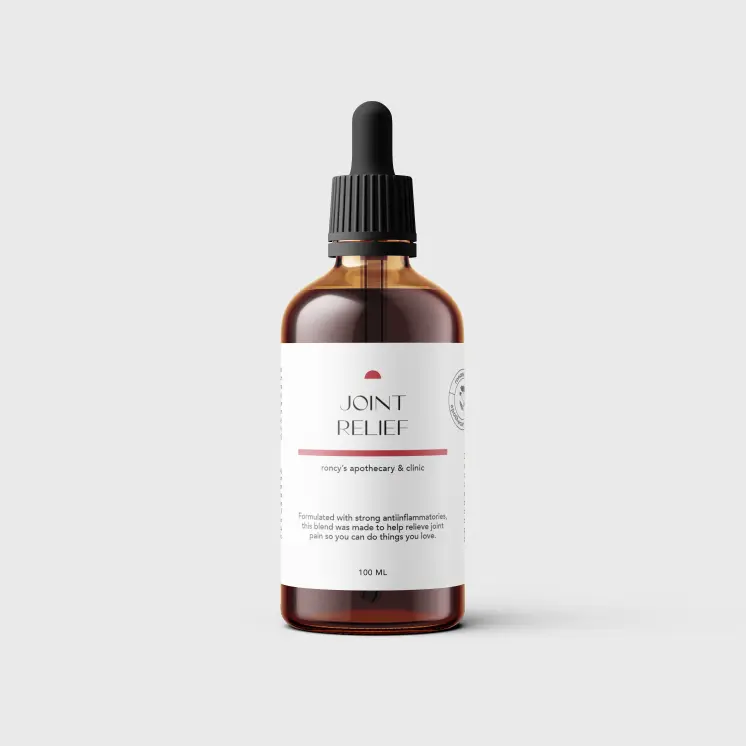Navigating chronic pain: ways to effectively manage and relieve pain
No one likes to live in pain since it has a HUGE impact on our quality of life, and also poses a challenge in doing some of the things we love! Pain management is a crucial aspect of maintaining overall well-being, and here at Roncy’s Apothecary & Clinic, we believe in using natural and effective methods to help you live a pain-free life.
In this blog post, we’ll talk about the role of inflammation in chronic pain, and explore different strategies for managing pain through the use of herbs and acupuncture, so you have the knowledge (and tools) for holistic pain relief.
understanding inflammation:short-term benefits & long-term problems
Inflammation is a natural response your bodygoes through for injury or infection. It serves as a protective mechanism to heal wounds and fight off harmful invaders. In the short term, inflammation is beneficia. However, when inflammation becomes chronic, it can lead to persistent pain and contribute to various health conditions, including arthritis, heart disease, and autoimmune disorders!
The unfortunate truth is that we live in a society that predisposes us to a lot of inflammation! This comes from poor diet (especially ones high in sugar), stress, lack of exercise, and exposure to environmental toxins. Understanding the physiology of inflammation can be important in managing pain effectively and preventing long-term health complications.
Why short term (acute) inflammation is crucial
In the beginning stages of injury or infection, inflammation helps by:
- Increasing blood flow to the affected area, delivering essential nutrients and oxygen for tissue repair
- Attracting immune cells to the site of injury to fight off pathogens
- Promoting the removal of damaged cells and tissues.
The issue with long term (chronic) inflammation
When inflammation becomes prolonged, it can cause:
- Persistent pain and swelling in joints and tissues
- Damage to healthy cells and tissues, leading to conditions such as arthritis and cardiovascular disease
- A weakened immune system, making the body more susceptible to infections and illnesses.
- Worsens existing health conditions & symptoms
Adopting an anti-inflammatory lifestyle has a whole slew of benefits! So here are some nutritional and lifestyle tips you can start today to help reduce inflammation for better pain management:
1) Eat your way to less inflammation
Nutrition plays a pivotal role in managing inflammation and, consequently, pain. What you eat can either help to reduce inflammation or contribute to it. In our modern diets, we often encounter foods that are pro-inflammatory, which can exacerbate pain and discomfort. On the other hand, incorporating anti-inflammatory foods into your diet can help to mitigate these effects and promote overall well-being.
THE FOES
- Sugar: Excessive sugar consumption can be particularly pro-inflammatory. When you eat sugar, especially refined sugars like those found in sweets and sodas, it can lead to a rapid increase in blood glucose levels. Over time, this can lead to insulin resistance, where your cells become less responsive to insulin. This is associated with chronic inflammation because it leads to increased visceral fat storage, which produces pro-inflammatory cytokines. Additionally, high sugar intake can lead to the formation of advanced glycation end products (AGEs). These lead to oxidative stress and inflammation, which can damage tissues and lead to various health issues, including diabetes, cardiovascular disease, and arthritis.
- Trans fats: Found in many fried foods and baked goods, trans fats are notorious for promoting inflammation. Trans fats can increase levels of LDL (bad) cholesterol while decreasing HDL (good) cholesterol, contributing to inflammation and the development of atherosclerosis, a condition characterized by the buildup of inflammatory plaques in the arteries.
- Processed foods: These are often high in unhealthy fats (such as trans fats), sugars, and additives, all of which can trigger inflammation for reasons mentioned above.
- Refined carbohydrates: White bread, pastries, and other refined carbs can spike blood sugar levels as well. When you consume refined carbohydrates, they are quickly broken down into glucose, causing a rapid rise in blood sugar and insulin levels. This spike can trigger an inflammatory response as the body works to balance blood sugar levels.
- Red and processed meats: These can contain high levels of saturated fats and other compounds that can inflame the body. Saturated fats can increase the levels of inflammatory markers in the blood, and compounds like nitrites, often found in processed meats, can further promote inflammation and oxidative stress, which can damage cells and tissues.
THE FRIENDS
- Fruits and vegetables: Rich in antioxidants and fiber, fruits and veggies like berries, leafy greens, and cruciferous vegetables (e.g., broccoli, cauliflower) are powerful anti-inflammatory agents. Antioxidants help neutralize free radicals, which can cause cellular damage and trigger inflammation. Fiber supports gut health, which is closely linked to inflammation, as a healthy gut microbiome can help regulate the immune system.
- Healthy fats: Omega-3 fatty acids found in fish (like salmon and mackerel), flaxseeds, and walnuts are excellent for reducing inflammation. Omega-3s help to decrease the production of inflammatory cytokines and eicosanoids, which are signaling molecules that play a key role in the inflammatory response. They also help to balance omega-6 fatty acids, which can be pro-inflammatory when consumed in excess.
- Whole grains: Brown rice, quinoa, and whole wheat bread provide fiber and nutrients that help fight inflammation. Whole grains have a lower glycemic index than refined grains, which means they cause a slower, more gradual rise in blood sugar levels, reducing the risk of inflammation. They also contain important vitamins, minerals, and antioxidants that support overall health.
- Cooking spices: There are several spices commonly found in your kitchen pantry that have potent anti-inflammatory properties (think turmeric, ginger, rosemary etc). Turmeric contains curcumin, a compound with powerful anti-inflammatory and antioxidant effects. Ginger has been shown to inhibit the production of pro-inflammatory cytokines, and rosemary contains carnosic acid and rosmarinic acid, both of which have anti-inflammatory effects.
By making mindful choices about what you put on your plate, you can significantly influence your body’s inflammatory response and pave the way for a more pain-free life! Remember, it’s not just about eliminating the bad stuff—it’s equally important to fill your diet with nutrient-rich, anti-inflammatory foods that support your overall health.

2) Everyday habits to reduce inflammation
Incorporating anti-inflammatory foods into your diet is crucial, but adopting certain lifestyle habits can also significantly reduce inflammation. Here are some everyday habits to help you combat inflammation and promote wellness.
- Stay hydrated: Proper hydration is essential for maintaining bodily functions and reducing inflammation. Water helps flush out toxins and supports the body’s natural detoxification processes. Aim to drink at least 1.5L of water a day (more if you are active), and consider incorporating hydrating foods like cucumbers, watermelon, and leafy greens into your diet.
- Get quality sleep: Sleep is vital for healing and plays a crucial role in regulating inflammation. During sleep, the body repairs tissues and releases cytokines, which are proteins that help fight inflammation and infection. Aim for 7-9 hours of quality sleep each night. Establish a regular sleep schedule, create a relaxing bedtime routine, and ensure your sleep environment is comfortable and free from distractions!
- Manage stress: Chronic stress can lead to elevated levels of cortisol, a stress hormone that can contribute to inflammation over time. Incorporate stress-reducing practices into your daily routine to help manage stress levels. Techniques such as breathwork, vagus nerve stimulation, meditation, yoga, and spending time in nature are great ways to reduce stress and lower inflammation.
- Implement movement / exercise: Regular movement helps reduce inflammation. Exercise stimulates the production of anti-inflammatory cytokines and reduces the presence of inflammatory markers in the body. Activities like walking, swimming, cycling, and strength training are great options. Listen to your body and choose activities you enjoy to stay consistent.
- Minimize exposure to toxins: Environmental toxins, such as pollution, chemicals, and pesticides, can contribute to inflammation. Reduce your exposure by choosing natural and organic products when possible, or ensure to wash your produce well! Use air purifiers in your home, avoid using harsh chemicals, and opt for natural cleaning and personal care products.
- Avoid smoking and limit alcohol: Smoking introduces harmful chemicals and free radicals that induce oxidative stress, damaging cells and prompting an inflammatory response. Alcohol consumption overwhelms the liver, and heigtens the production of inflammatory molecules, leading to more inflammation.
- Practice mindful eating: Mindful eating involves paying attention to the food you eat and how it makes you feel. Eating slowly, savoring each bite, and listening to your body’s hunger and fullness cues can help you make healthier food choices and reduce inflammation. Mindful eating also promotes better digestion and nutrient absorption!
- Support gut health: A healthy gut is essential for reducing inflammation. Your gut microbiome, the collection of bacteria and other microorganisms in your digestive tract, plays a significant role in regulating inflammation. Consume a diet rich in fiber, probiotics, and prebiotics to support gut health. Fermented foods like yogurt, kefir, sauerkraut, and kimchi are excellent sources of probiotics, while fruits, vegetables, and whole grains provide prebiotics.
By integrating these everyday habits into your routine, you can effectively reduce inflammation and enhance your overall health and well-being. These small, consistent changes can make a significant difference in your body’s ability to manage and prevent inflammation.
nature’s pain reliever: herbal solutions for pain management
Incorporating anti-inflammatory herbs into your wellness routine can provide significant pain relief. Here are some powerful herbs known for their pain-relieving properties:
This herb is celebrated for its anti-inflammatory properties, which help reduce pain and swelling, particularly in arthritis and other inflammatory conditions. Cat’s claw contains compounds that inhibit the production of inflammatory cytokines, which helps alleviate joint pain and supporting overall joint health.
2) Japanese Knotweed (Polygonum cuspidatum)
Rich in resveratrol, Japanese knotweed is known for its potent antioxidant and anti-inflammatory properties. This herb helps combat oxidative stress, reduces inflammatory markers, and supports cellular health, making it a great addition for relieving joint pain and promoting cardiovascular well-being.
3) True Solomon’s Seal (Polygonatum biflorum)
This herb is valued for its ability to repair damaged tissues and reduce inflammation, making it effective for joint pain and muscle injuries. True Solomon’s seal contains compounds that promote collagen synthesis and inhibit inflammatory pathways, helping to alleviate pain and improve mobility.
4) Devil’s Claw (Harpagophytum procumbens)
Native to Africa, devil’s claw is renowned for its analgesic and anti-inflammatory effects. It is commonly used to relieve pain associated with conditions like osteoarthritis, rheumatoid arthritis, and lower back pain. Devil’s claw works by inhibiting inflammatory enzymes and reducing the production of pro-inflammatory molecules, offering significant relief from chronic pain.
5) Boswellia (boswellia serrata)
Also known as frankincense, boswellia is prized for its anti-inflammatory properties. It contains boswellic acids, which inhibit inflammatory enzymes and help reduce pain and swelling in conditions such as arthritis and inflammatory bowel diseases like Crohn’s disease and ulcerative colitis. Boswellia is often used in herbal formulations to support joint health and manage chronic inflammatory conditions.
6) Celery seed (Apium graveolens)
Celery seed is packed with anti-inflammatory compounds that help reduce pain and inflammation, particularly in conditions like gout and arthritis. It contains phytochemicals that inhibit inflammatory pathways and reduce the formation of uric acid crystals, which are responsible for causing joint pain and inflammation in gout.
The art of acupuncture for pain relief and management
Acupuncture, a key component of traditional Chinese medicine, has been used for thousands of years to manage pain and promote overall health. By stimulating specific points on the body with fine needles, acupuncture helps to regulate the flow of energy, or Qi, believed to underlie health and well-being. When our qi is stagnated, it can lead to countless symptoms, including pain. Through acupuncture, we are able to correct the stagnation, and activate the body’s natural pain relieving mechanisms through the release of endorphins (our own pain relieving chemicals)micals.
Acupuncture is particularly valued for its ability to alleviate chronic pain conditions such as back pain, arthritis, migraines, and fibromyalgia. Beyond pain relief, acupuncture also promotes relaxation, improves sleep, reduces stress levels, balance our hormones etc, all of which can reduce inflammation in the body. Its holistic approach addresses not only the symptoms but also the underlying imbalances contributing to pain, making it a comprehensive and effective treatment option for those seeking natural and integrative pain management solutions.
conclusion
Effective pain management requires a comprehensive approach that addresses the root cause of inflammation. By adopting an anti-inflammatory approach, utilizing the right herbs, and supporting with acupuncture, we can help manage your pain naturally so you can do the things you enjoy!
At Roncy’s Apothecary & Clinic, we are committed to providing holistic solutions for pain management. Whether you’re dealing with chronic pain or looking for natural ways to enhance your well-being, our team of naturopathic doctors, herbalists, and acupuncturists is here to support you. Together, let’s take proactive steps towards a pain-free and healthier life!
book an
acupuncturesession today
book a community acupuncture session today for natural pain relief through the art of Traditional Chinese Medicine
shop our
pain relievingformulas
herbalist and naturopathically approved formulations to manage your pain naturally so you can do the things you enjoy!


